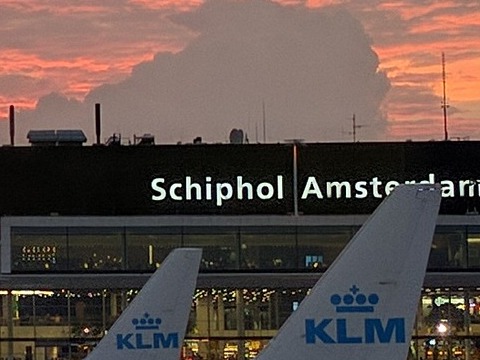24th May, 2023
Could Schiphol Airport be a bellwether for the need to reign in not just airport growth but also current flight numbers in order to manage environmental impacts? This article looks at measures from both the Dutch Government and the airport itself to limit noise, air pollution and potentially greenhouse gas emissions through limits on airport capacity and aviation activity.
In June 2022, the Government of the Netherlands announced a decision to limit flight movements at Schiphol airport to a maximum of 440,000 a year in order to deliver “a better, healthier living environment”.
This was perhaps the first time that an airport’s permitted activity level was retrospectively cut back for environmental reasons. The Government said that the move, which capped flights at levels 11% lower than 2019, would bring down both noise and nitrogen dioxide emissions.
The decision was made after years of repeated breaches of established noise limits, and is expected to come into effect in November 2024 to allow airlines time to amend their schedules.
Airlines based at the airport did not take this announcement well. KLM, the Dutch arm of the Air-France KLM group, operates 60% of the flights at Schiphol, and along with Delta Airlines, easyJet, TUI and Turkey’s Corendon Airlines, began summary proceedings in March 2023 against the Dutch Government.
In a joint statement announcing their court case, they said: “Airlines have already made multi-billion euros investments to meet near- and long-term goals in line with their own decarbonization trajectories as well as government policies, while the government’s justification hinges on operational restrictions with no consideration of alternative workable solutions to effect noise reduction.” They also claimed that the decision violated national, European and international legislation.
In April 2023, a local court ruled in favour of the airlines in that the Government could not – it said – introduce the interim cap to flight numbers without having gone through the correct procedures, regardless of the merits or otherwise of the decision itself.

Schiphol itself has begun reigning in flights
It is unclear how the Dutch Government will proceed, but Schiphol Airport Group, which supported the Government decision, has meanwhile announced measures to tackle noise and pollution that include a ban on private jets, fewer night flights and scrapping previously floated plans for a new runway. There will also be clearer limits for noise and emissions and an annual investment of €10 million in “local environment and residents”. Their main priority, they say, is putting residents and the environment first.
Some commentators have speculated there’s another agenda at play. Schiphol Airport Group set a cap of 66,000 passengers a day during the May 2023 holiday period due to unresolved staff shortages following the drop-off in travel demand and consequent staff lay-offs during the Covid pandemic. This was also a massive issue in the summer of 2022. But the fact remains that the airport is now positioning itself as one that is prepared to cut back on flights to help meet local and global environmental targets.
Flight caps for the climate are now on the table
In March 2023 the Dutch Government announced that from 2025 airports in the Netherlands will have caps imposed on their flight numbers in order to limit CO2 emissions, with the level of the cap varying by airport. They have not yet specified the thresholds for Schiphol. In a letter to parliament, Infrastructure and Water Management Minister, Mark Harber, stated that the cap “secures the climate goals for aviation by setting clear and enforceable limits on permitted CO2 emissions, thus creating a guarantee for meeting the climate targets”.
Schiphol’s decision to ban private jets and reduce flight numbers represents a move rarely seen from an industry that has made clear its ambition to grow, despite climate scientists and campaigners warning otherwise. The decision of the Dutch Government to start introducing hard limits (including reductions) on flight numbers in order to reign in environmental impacts is also a very different approach to that being pursued in the UK. Airlines may be unlikely to support these moves, but with decarbonising technology a far-distant reality, this may well be a sign of what’s to come.
In 2014, Heathrow CEO responded to claims that Schiphol could overtake Heathrow as Europe biggest hub within a decade by banging the drum for a third runway. “Lack of capacity at Heathrow means we are being overtaken by our European competitors,” he said, continuing that “[the Netherlands] are taking the growth that should be ours.”
Seems times are changing. Maybe it’s a good moment for this Government – or the next one – to look again at whether more and more flights are what the UK really needs in order to keep up.
